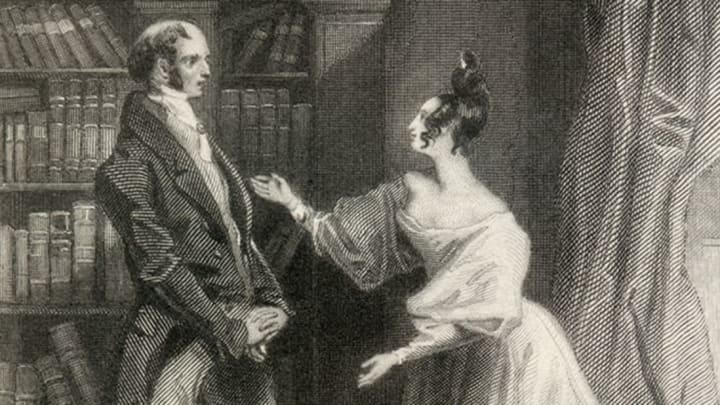If there’s one way the 20th-century literary canon diverges from the previous century's, it’s sentimentality. The works of prizewinning authors such as Toni Morrison, Joan Didion, Don DeLillo, and Ralph Ellison today feature about 7.5 fewer sentimental words per page than a 19th-century title, according to a new analysis from Andrew Piper and Richard Jean So, two humanities scholars who run Culture After Computation, a blog that uses data to analyze culture before and after the Internet.
In a piece for The New Republic, the scholars analyzed 2000 novels in English from the last 50 years, using titles drawn from lists of bestsellers, award-winners, the most widely held titles in libraries, and more, comparing their use of emotional language to 19th-century classics like the works of Charles Dickens, Emily Brontë, and Mary Shelley.
They used a technique called sentiment analysis, in which a computer program rates a text’s sentimentality based on the number of very strongly positive or negative words used (such as abominable or rapturous). The sentimentality ratings were based on dictionaries developed by computer scientist Bing Liu, who studies how machines can mine datasets for opinions.
In a 19th century novel, sentimental vocabulary words make up about 7 percent of the text, compared to just 5.5 percent for prize-winning fiction from the past decade. To give you a sense of scale, that means that a recent prizewinning novel about the same length as Pride and Prejudice contains around 1500 fewer sentimental words than Jane Austen’s masterpiece. Unsurprisingly, modern romance novels tend to have higher sentimentality rates than the high-brow literary fiction reviewed by The New York Times, but only an average of three or four more words per page.
However, sentimentality isn't a good distinguishing mark between popular and "serious" work. The authors found that while some genres, such as romance and young adult novels, featured more sentimental words, books that got a Times review or a literary prize had about the same sentimentality rates as bestsellers and popular mysteries. There was also no correlation between sentimentality and book sales. Yet the "most canonical" literature since 1945—from authors like Toni Morrison and Vladimir Nabokov—does tend to be the most reserved in its use of language, averaging three or four fewer sentimental words per page compared to the 400 most-held books in library collections since 1945.
You can read the researchers’ whole analysis in The New Republic.
